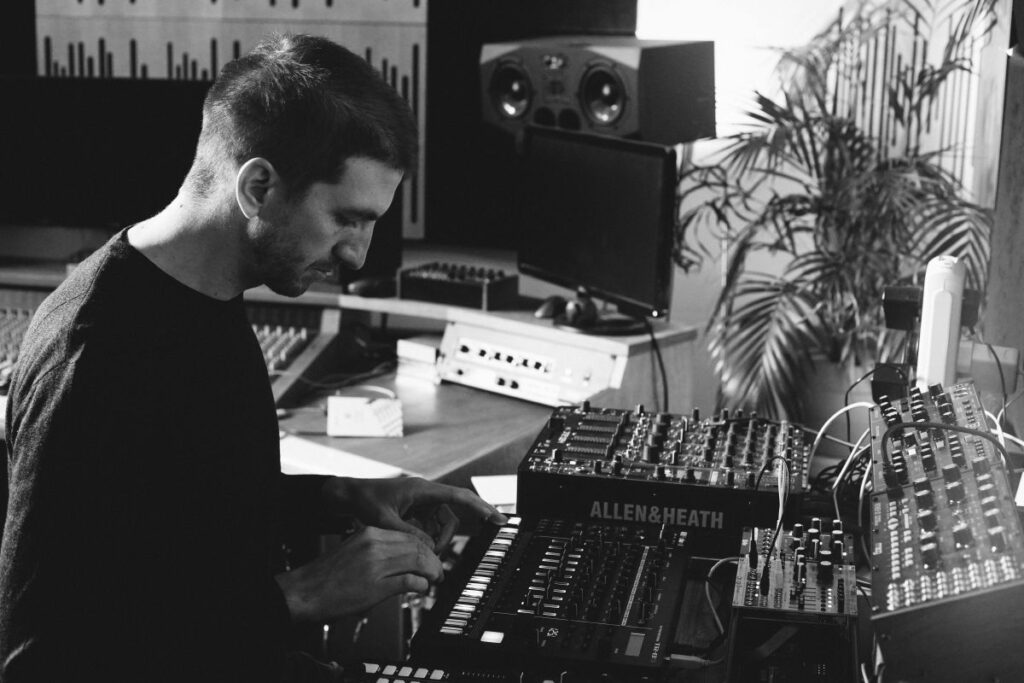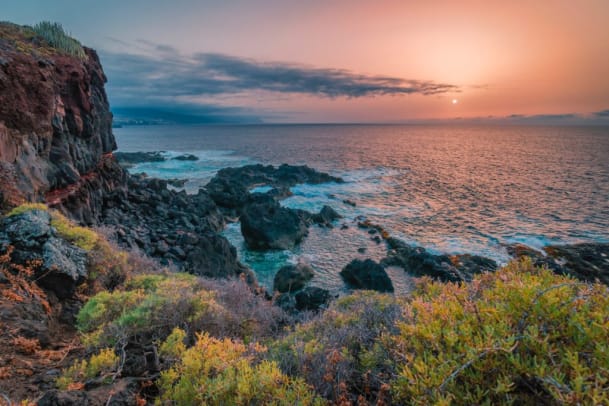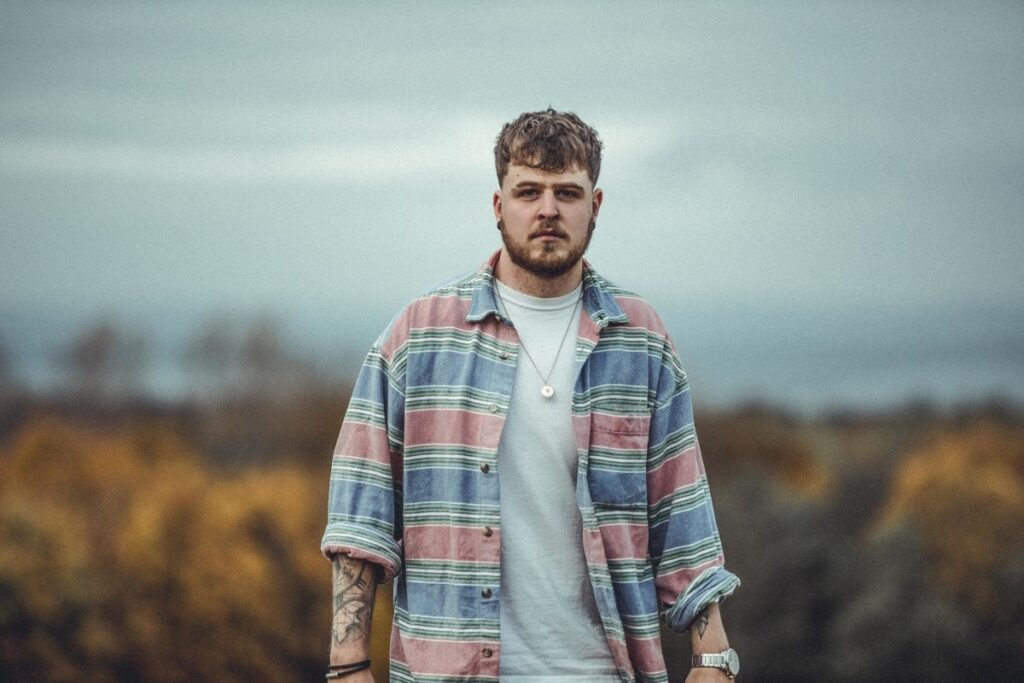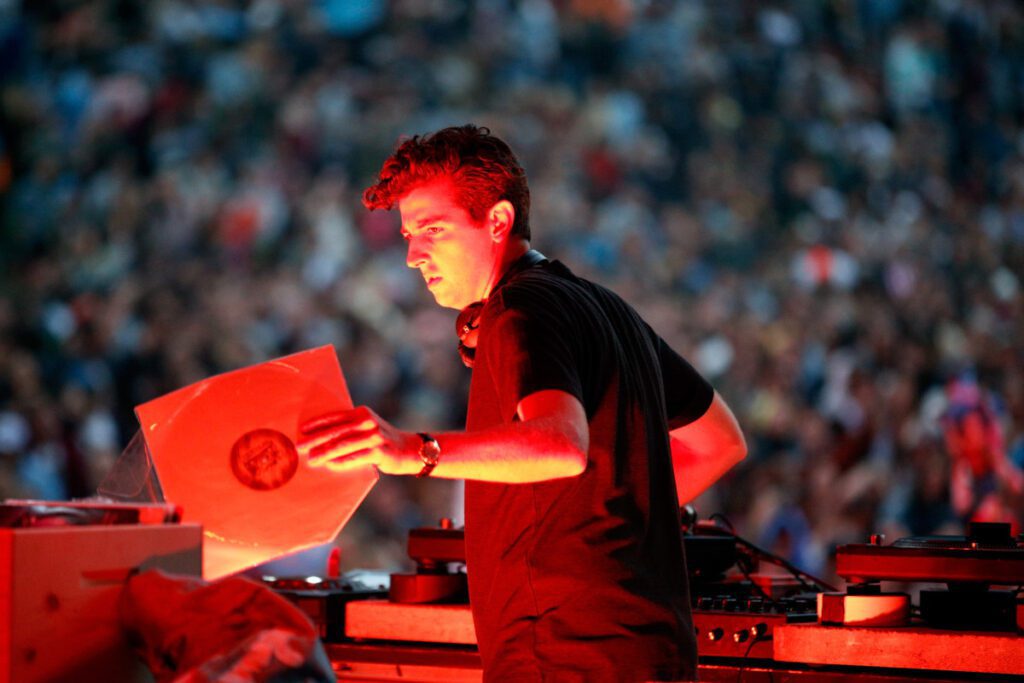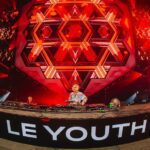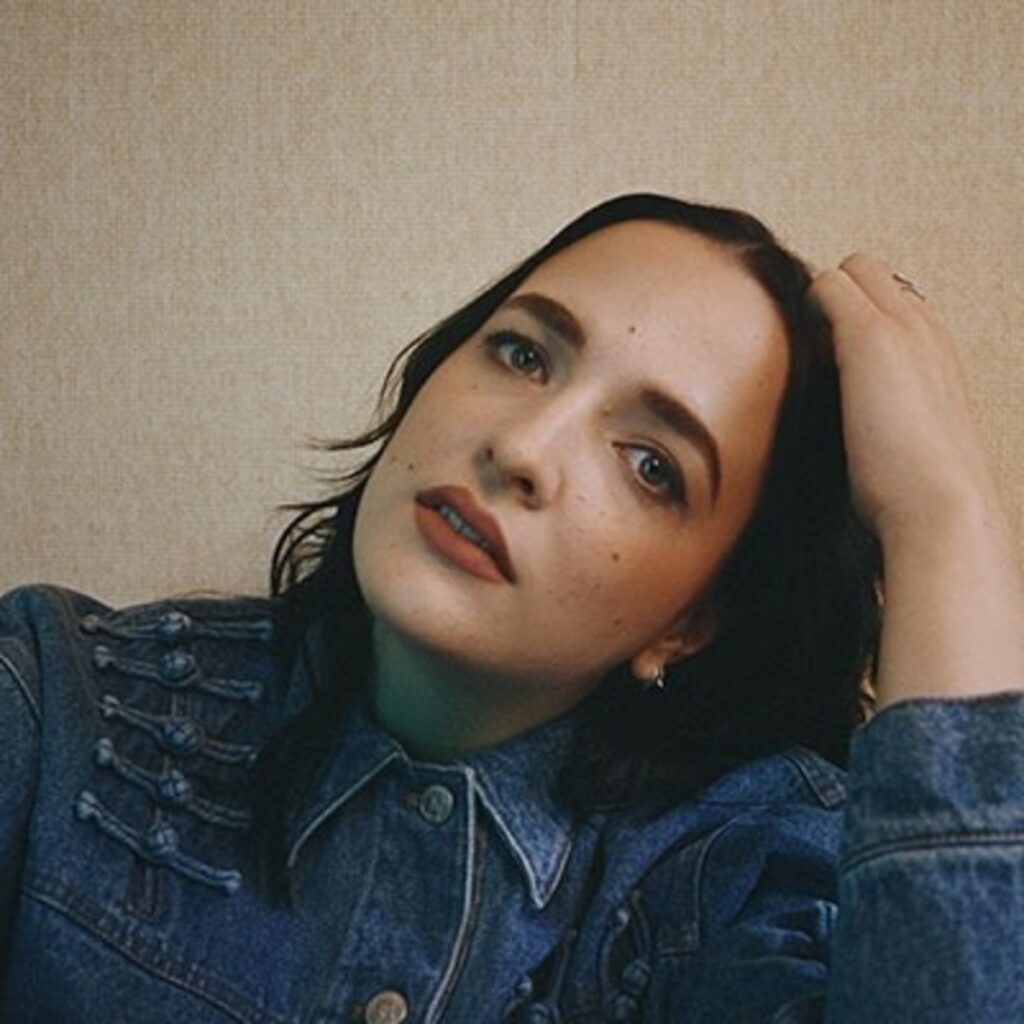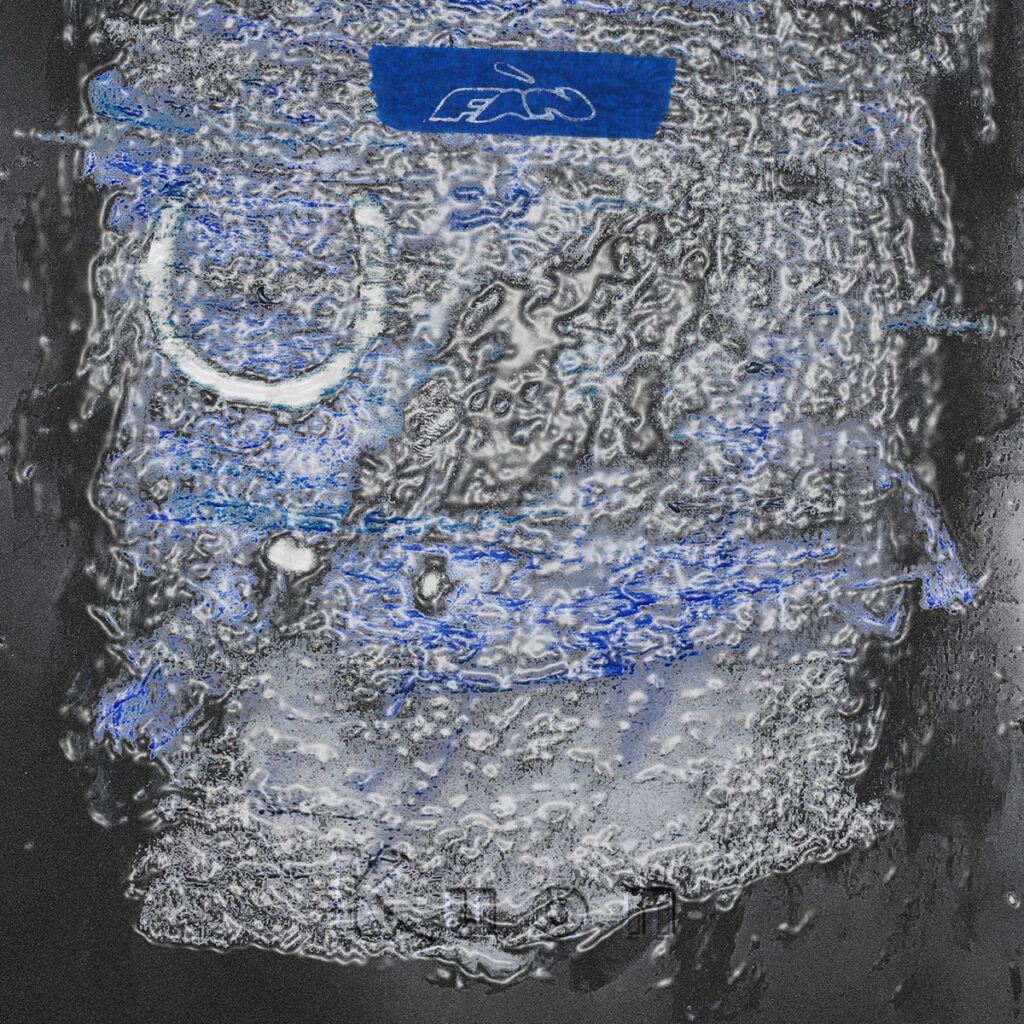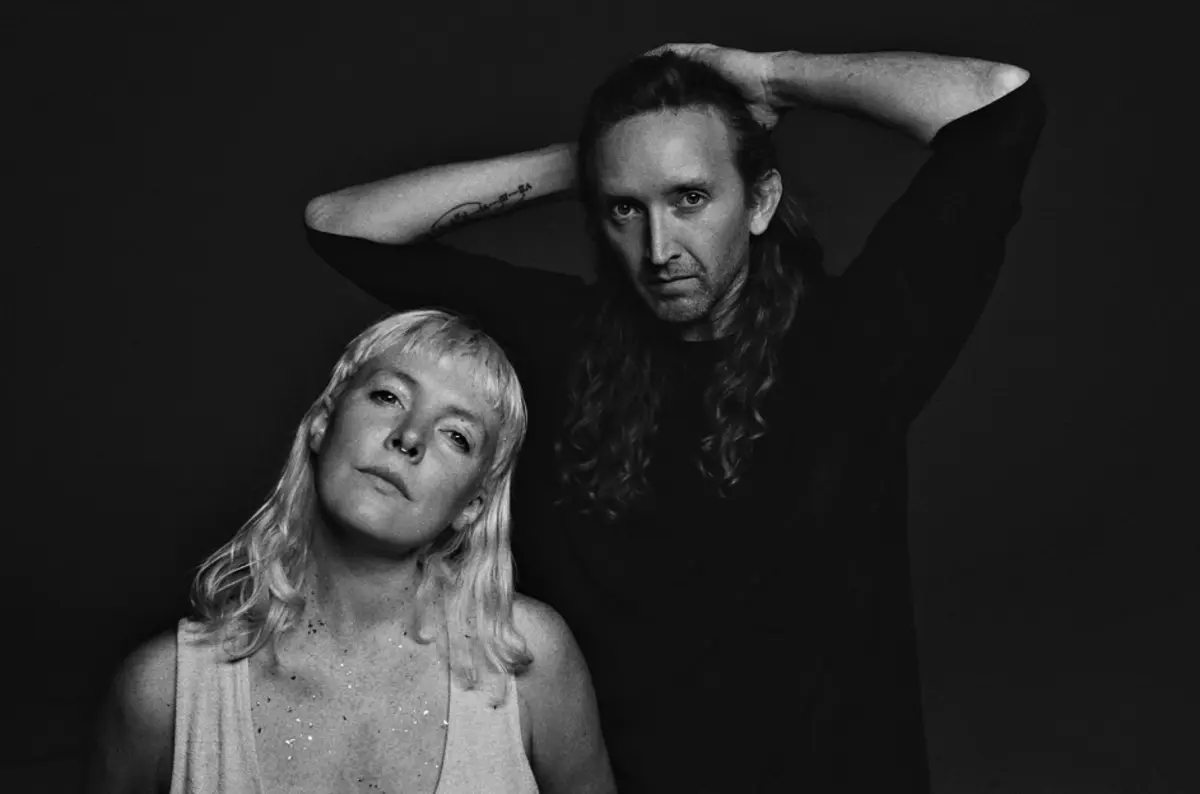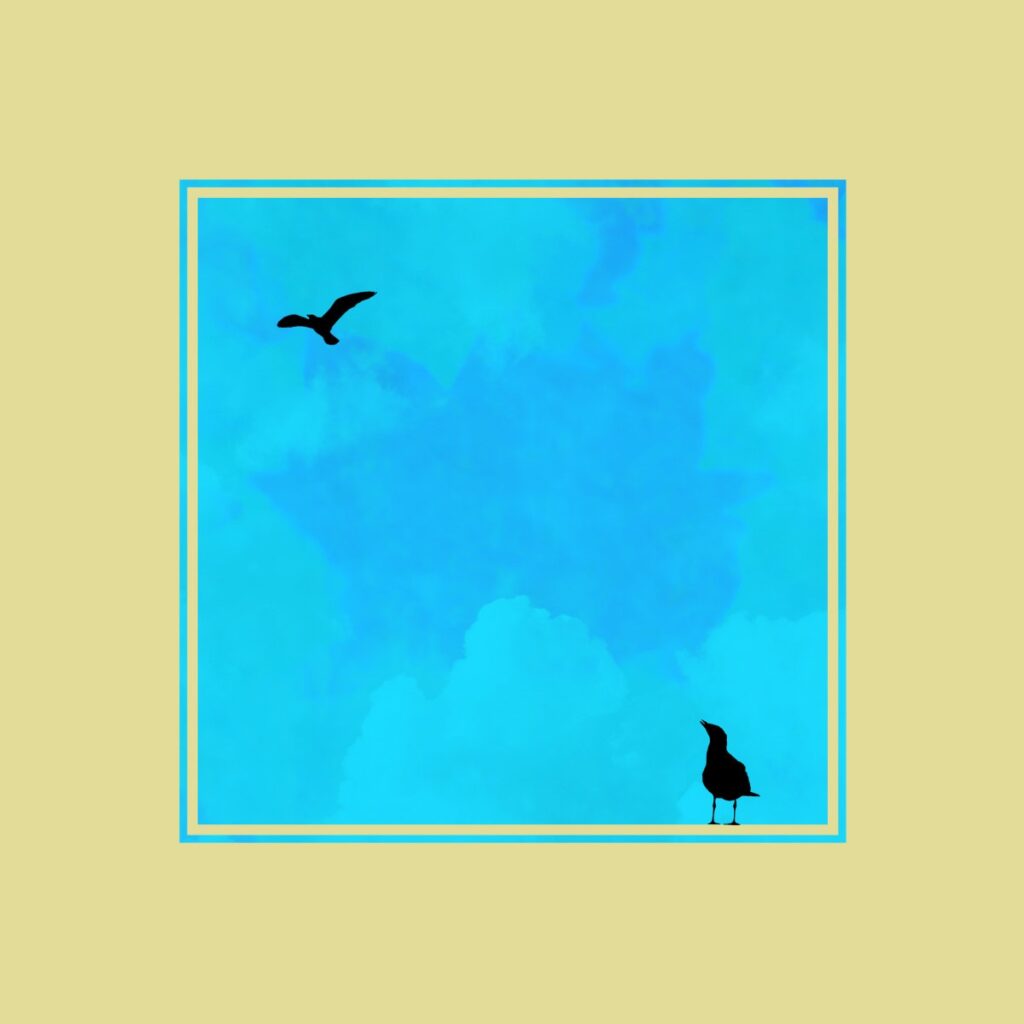Alex Banks is quite a unique producer. Being a trained multi-instrumentalist, he is just as capable of composing a hard hitting club banger, as he is at a big band, jazz track. This has led him to not only being an acclaimed electronic musician, releasing a remix for Bonobo on his acclaimed Black Sands Remixed album – but also an accomplished composer for film, advertisements, and other sound library music. The latter has soundtracked hit shows such as the trailer for the BBC and HBO’s collaborative I May Destroy You, as well as had tracks he’s produced performed for over 850 million people on air in China (he showed us the track, but really doesn’t want that sound associated with him, so it remains a mystery to the general public.)
Out now on Max Cooper’s Mesh label, his latest release, Tephra, is a 5-track, genreless EP, spanning club floor bangers, left field bass and acute ambient compositions, accented by his signature, textured sound design.
The concepts manifested themselves after spending a couple months in the wind swept, vulcan terrain of the Canary Islands, Spain. Regulating himself to a minimal amount of gear, he traveled from his studio in the UK to the Island’s to test these restrictions.
Magnetic had a public health friendly Zoom call with Banks, where we discussed his upbringings as a musician, his first breaks, how moments in time and place affect his work, his brush with the coronavirus, and if DJs are musicians are not.
Magnetic: So, you got your break in 2012 by getting to remix a song off Bonobo’s Black Sands album. However, let’s go back even farther than that, and talk about your tentative years as a musician – your first gigs, and how you found that itch to just want to be on stage.
Banks: I mean that started really when I was like eight or nine years old. I started playing guitar, drums, and piano, having lessons in all three of those instruments. When I was 10 years old my older brother, who's six years older than me, already played rock guitar and I really looked up to him as a kid. At that time, I was getting into a lot of metal bands like Guns N Roses, Metallica, that kind of thing. That kind of nurtured my desire pretty early on to want to be on a stage and playing bands. Even as a kid I was getting little bands together and started writing songs with some friends. Then during music recitals, instead of hearing a kid play Baa Baa Blacksheep, me and some mates would be playing some metal cover.
Then when I was like 13 or something, I saw Orbital playing at Glastonbury on TV. It was one of the first times that people in the UK had seen a band play electronic music at a festival. Instead of a band, it was guys with synthesizers, with cool lights, and those iconic L.E.D things on their heads.
Around this time I started getting into production. My teacher saw that I had a passion for music, and got me enrolled in this music technology class that was reserved for kids a few years older than me.
In our school we were able to book rooms to practice in, either with our band, or whatever. One day, a friend, and I decided to take out all of the old sequencers, and other electronic music equipment we found in the building, and patch it all together and start playing with it. It was really janky stuff. When one of our teachers who wasn’t aware of what we were doing, found out we had done this, they were not happy at all. This is what set up my desire to want to do electronic music as live as possible, like in a band.
What was the opportunity that allowed you to finally be able to perform electronic music for a crowd?
I first started playing gigs when I went to university. We knew these guys who were taking music business who threw a club night for their course. They needed people to perform, so they chose me. At the time I didn’t even have a laptop, so I was using this old Apple G4 tower with a 24 inch screen. The bass in the club would shake it all around – I thought it was going to fall off. One piece of equipment I would use was the Tascam US428. I’d have that on stage that would mute and unmute channels in Cubase. It was incredibly unstable, but it was a lot of fun. It would be a huge ball ache nowadays, but it was low pressure, and it was exciting.
After leaving university, I decided that I wanted to jump into this. When I lived at home with my mom for a little after, I was living nocturnally, getting a lot of inspiration to do these tracks. Around this time, I was also getting into music freelancing, doing library work for commercial stuff.
Musical projects have always been a diary of what is happening in my life. Whether intentional or not, it always captures moods and things that I have been influenced by at that moment in time. It’s always nice to listen back to my old songs and hear the soundtrack of my life in a way. Then it’s always cool when fans hit you up, and talk about how that song has influenced a part of their lives. Like with my most recent album, Beneath The Surface, people would hit me up and talk about how they were listening to it on a certain beach or mountain range, and it being their soundtrack for that moment. It’s always great that sometimes you hear people having parallel experiences to what I was feeling when I made it, but in their own way.

Alex Banks' stripped down Canary Island studio
Anthony Faulkner
So what kind of emotions and experiences were you having when you made Tephra? Tephra seems to have this quiet rage to it, like a lot of your music.
It’s an interesting point about the rage you hear in the music, because anyone who knows me would describe me as quite a laid back, easy going, relaxed guy. People always sort of wonder why someone who has this kind of balanced personality, and optimistic view on life, makes such intense, and somewhat melancholic music. I’m not exactly sure why it comes out like that. In all of us, there are a lot of emotions.
Is this a sort of release then, where you funnel those emotions into your art, and that’s why you can be so calm?
I guess so, yeah. That was definitely the case when I was a teenager, and I would come home and play my drum kit, and practice really heavy stuff on the guitar. Now, it’s not so much about the release, since I don’t really have that much trauma in my life, but I just enjoy dark intensity. Most of the most inspiring moments that I have had with music, live, or in a club, have always been when the intensity gets you, and it makes you want to screw your face up. Maybe those sort of textures kind of penetrate past a superficial level, and I really get it.

Alex Banks' Brighton Studio
Anthony Faulkner
That penetration of superficiality is apparent in your music. One thing that’s interesting is that you manage to release a diverse music under your name, without adopting a moniker for each sound. How do you go about staying relatively genreless, when a lot of artists feel like they need a side project for another sound they want to make? How do you find labels that are willing to accept that’s who you are?
I’ve never wanted to fit neatly into a box, and I think that comes from my love of experimentation. When I’m working on a track, I never want to just make another one like it. Before I kind of broke out with the Bonobo remix, trying to find labels to release my stuff was really difficult, because they really like two or three tracks that maybe sort of fitted together but they weren't really into the rest of it, or or vice versa. I never really saw releasing under different monikers as being an option, because it’s all me, and it’s who I am.
It’s really good to be on Mesh, because Max Cooper (label head) encourages me to really concentrate on the art. It’s all about artistic freedom over there.
So, when you made this latest EP, you spent time making it on the Canary Islands, which has to be an experience on its own, being such a unique landscape. So what was the environment like on the Canary Islands?
The landscapes are just so vast, and otherworldly. Our routine was to get up early with the sun, which is unusual for me. I’d do some studio work for a few hours in the morning with my coffee, and then drive off into the mountains, with the most surreal lunar landscapes, surrounded by the ocean that went on forever. Then I’d come back, and do some more work in the studio. The vastness of this landscape had a subconscious effect on the sound of the music. The track "Vegueta" is named after where we stayed for part of the trip. There is not much around there, besides a vineyard grown in ash, and the shade of the volcano. However, if you went to the coast, you would have 25 degree sunshine, holiday weather. Where we stayed, which was inland, you’d drive from the coast, back there, and the temperature would drop 10 degrees.
We would have this weird contrast of seasons almost, and that definitely had an effect on the sound of that track, since where we were staying was kind of intense, and so is the track. Even the place we were staying had this intense character, like a house out of some 80’s drug dealer movie. That tension between remote, brisk areas and a sunshine holiday coast being so close to each other definitely had an effect. I don’t want people to think this is my COVID album, because it’s not – I was traveling before for a lot of it.
Speaking of COVID, what’s going on in the UK?
The country is back into lockdown, since the virus is getting kind of out of control because the government here is fucked. It doesn’t really change much for me, since we have been in lockdown pretty much the whole time. The reason why is because we actually both had it, and while I was over with it in a couple weeks, she [his partner] got it badly, and still is recovering 7 months after, with fatigue, chest pains, and a greatly increased heart rate. Now, she can’t even get a cold, or a cough, since it could prolong her recovery so we’ve been really careful.
The last thing we wanted to ask, since it’s recent, is that in Germany, DJs are now considered musicians by tax law, allowing them to pay a subsidized tax rate on their performances. So that begs the question – are DJs musicians?
From a tax point of view, that makes sense. They are providing valid, musical experiences for people, and therefore should get the same tax breaks given to musicians. However, are they actually musicians? I don’t know, that’s a hard question. They’re not really making anything new, but at the same time, if they are mixing three tracks together in a creative way, then yeah, it is something new. But they aren’t really playing it. I guess, when it comes to me, when I’m doing a live set for instance, whenever I’m triggering a scene in Ableton, or moving a fader, I feel a connection with the performance I’m creating, but I don’t necessarily feel like I’m playing an instrument in the traditional sense . Like when I’m hitting a drum pad on stage, or playing a synth, in that moment I feel musical. I guess to feel musical for me, it has to respond in real time to an action I take, in a tactile way. I do feel musical when I'm playing a live set, and I do feel like the whole rig is a kind of instrument, but I don't feel I can call myself a musician when I'm manipulating pre-existing sounds instead of creating new ones.
Then it’s the matter of rights – they don’t actually own the rights to the music, but at the same time, neither does a cover band playing someone else’s song. Tough question.
Tephra is out now on Max Cooper’s Mesh. Listen and buy on Bandcamp.


